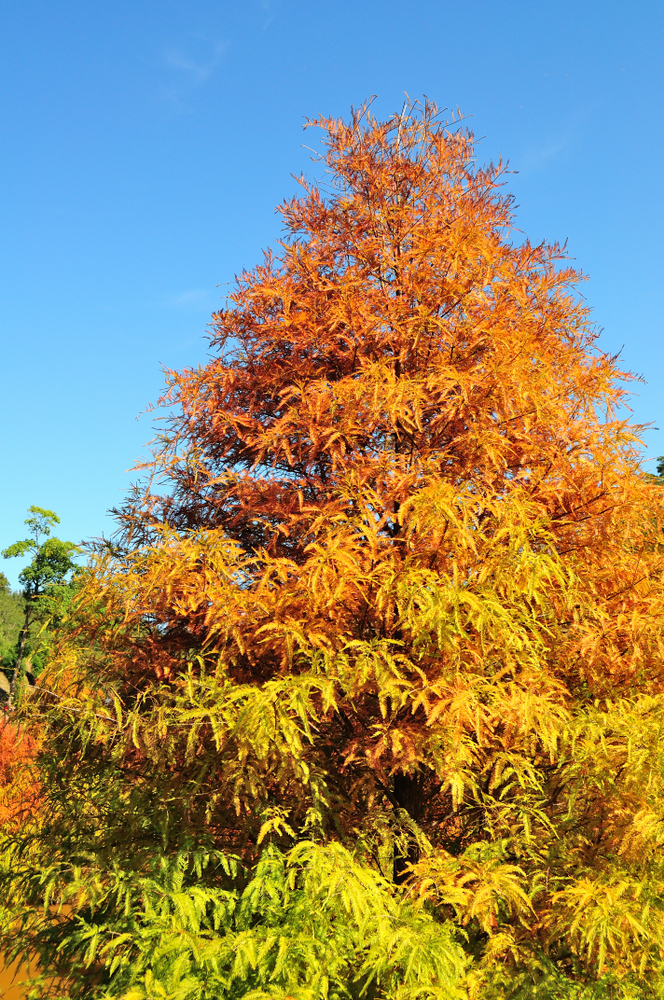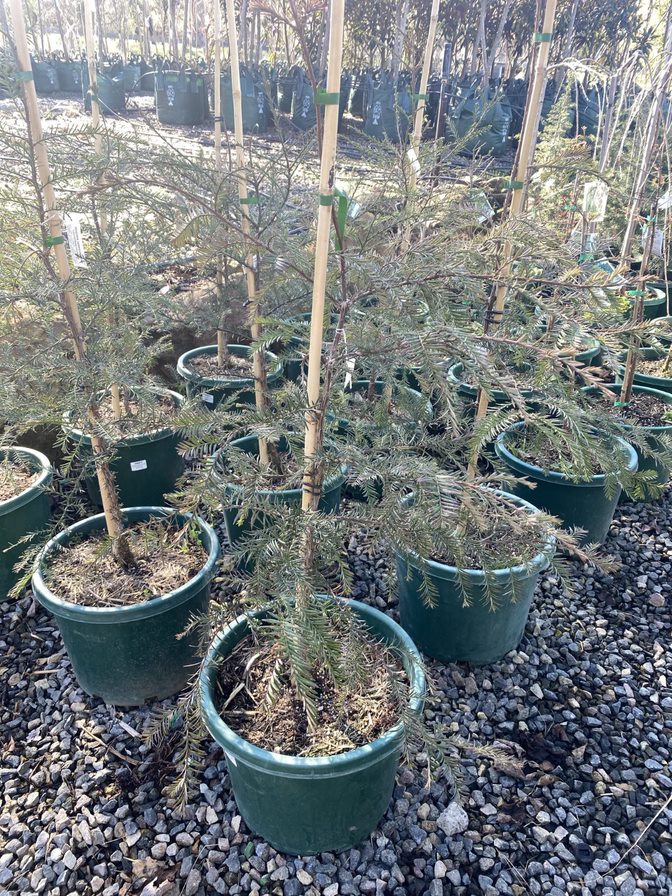Description
Taxodium is a genus of deciduous coniferous trees in the family Cupressaceae, which is native to North America and East Asia. Here are some general features and horticultural notes on Taxodium:
Physical Characteristics: Taxodium trees have a conical or columnar shape, with a single trunk that can reach up to 50 meters in height. The bark is usually thick, fibrous, and reddish-brown, and the branches are usually horizontal or slightly drooping. The leaves are soft and needle-like and arranged in a spiral pattern around the branches.
Climate and Soil Requirements: Taxodium trees prefer a temperate to subtropical climate with moderate to high rainfall. They grow well in well-draining soils that are slightly acidic to neutral.
Sunlight Requirements: Taxodium trees prefer full sun but can tolerate partial shade.
Size and Growth Rate: Taxodium trees have a moderate to fast growth rate, with a growth rate of around 50-80 centimetres per year. Mature trees can reach up to 50 meters in height and 3 meters in diameter.
Pruning: Taxodium trees do not require much pruning, but dead or damaged branches can be removed in late winter or early spring.
Watering: Taxodium trees require regular watering, especially during dry periods.
Fertilizing: Taxodium trees benefit from regular fertilizing with a balanced fertilizer in the spring and summer.
Propagation: Taxodium trees can be propagated from seed or cuttings. Seeds should be collected in the fall and stratified for several weeks before planting.
Pests and Diseases: Taxodium trees are relatively pest and disease resistant, but can be susceptible to various fungal diseases, such as canker and root rot.
Uses: Taxodium trees are commonly used as ornamental trees in parks and gardens due to their attractive shape and foliage. They are also used in forestry for their high-quality timber, which is used in construction, furniture-making, and other applications. In addition, Taxodium has cultural and ecological significance in its native regions, such as the bald cypress swamps of the south-eastern United States.



